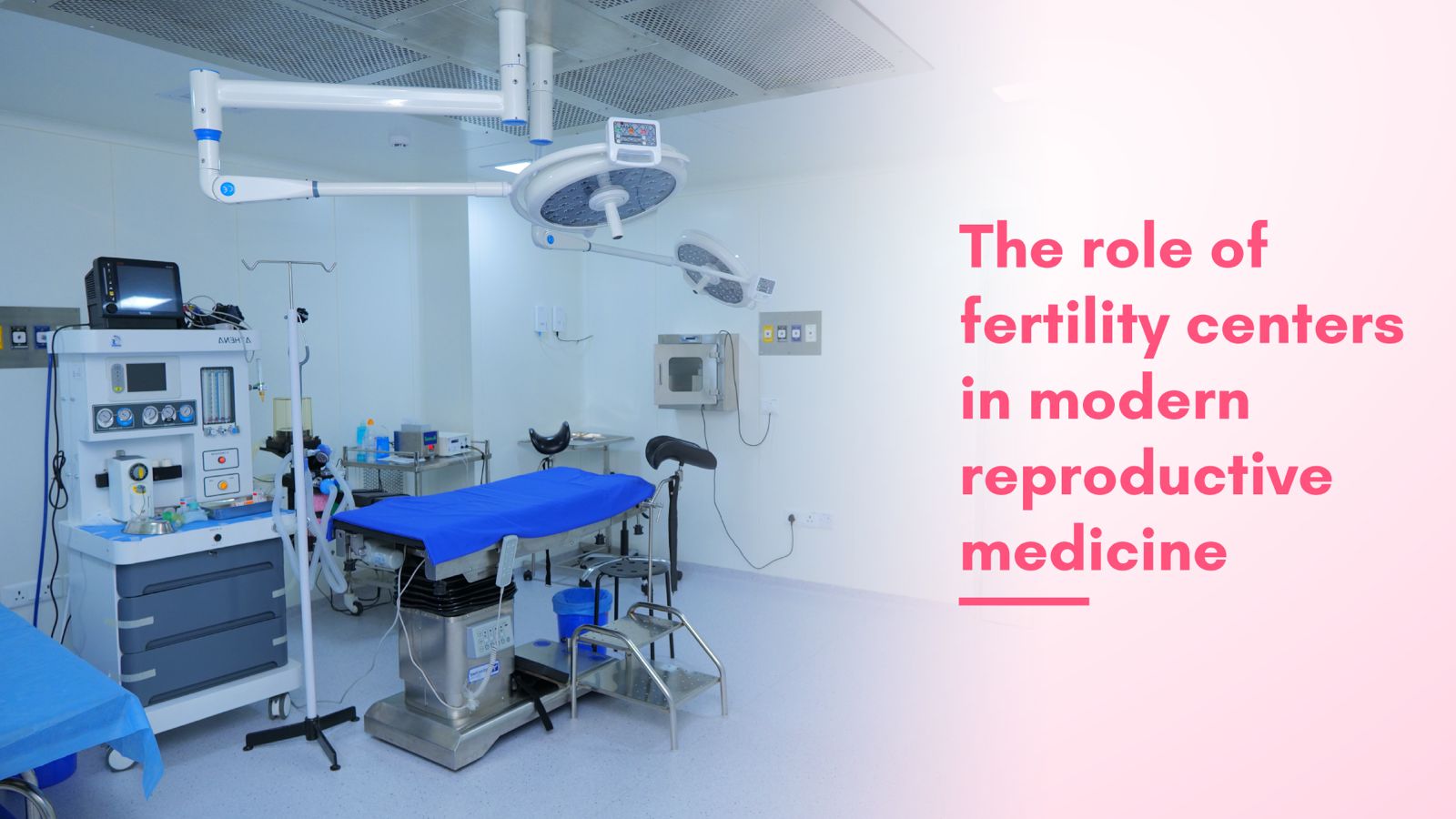Before the 19th century, women with infertility issues had close to zero options for overcoming it. However, that’s not the case anymore, thanks to the introduction of fertility medicine and assisted reproductive technologies, which works like a boon for couples. With the help of reproductive treatment, women can enter their motherhood phase whether they have infertility issues, miscarriages, or other factors that affect their pregnancy.
Since the treatment and medicine to get pregnant fast have been successfully developed over time, the role of fertility centers has seen a surge in the past few years. With such innovations, women can now get pregnant with the right treatment, even with serious disorders. Fertility centers have revolutionized the field of reproductive medicine, empowering countless couples to build families.
In this article, we will discuss the major roles of fertility centers and how they have changed the dynamics of reproduction in the human species.
Related Read: 7 Tips That Can Help Find the Best Infertility Centre
Evolution Of Fertility Treatments And Technologies
IVF (In vitro fertilization) was not very popular and effective since the beginning, but now it has evolved into the mainstream and gives hope to couples to enjoy their parenthood. When the fertility treatment was in the experimental phase, the scientists were unaware that the ovulation cycle and infertility play a major role in IVF, and it took them decades to discover the right way. The field of fertility medicine underwent a significant transformation in the mid-20th century. This era saw a surge in new techniques, including sperm, egg, and embryo freezing, as well as egg donation.
In the 1990s, scientists achieved a milestone in overcoming the factors causing infertility in men and women. As the experiments grew, intracytoplasmic sperm injection, preimplantation genetic screening, time-lapse photos, embryo scopes, embryo selection for transfer, identification, and separation of sperm and oocytes were developed. Thus, the landscape of fertility medications, treatments, and technologies evolved over the years.
Services Offered By Fertility Centers
- Fertility Assessments And Diagnostic ProceduresThe initial service offered by a fertility center is the assessment and diagnostic procedure. Both men and women may undergo common tests, such as blood tests, ultrasound scans, and X-rays. Apart from that, women may have to go through laparoscopy, whereas, for men, it’s semen analysis.
- Assisted Reproductive Technologies (ART)Assisted reproductive technologies (ART) techniques, like IVF, are yet another effective infertility treatment offered at fertility centers. In simple terms, ART follows the process of fertilizing the sperm and eggs in a laboratory.Once the embryos form, they are inserted into the woman’s uterus and observed for conception for 14 days. If the woman gets pregnant, then further treatment differs, but in case it does not succeed, a frozen embryo can be used, or a new cycle starts.There are several types of ART techniques used to form embryos in fertility centers. In vitro fertilization (IVF) and Intracytoplasmic sperm injection (ICSI) are two of them.
- In Vitro Fertilization (IVF)In vitro fertilization (IVF) is the process in which the eggs and sperm are placed in a laboratory dish where the most capable sperm penetrates into the egg. This is just like natural fertilization; the only difference is that it takes place outside the human body. Once the egg is fertilized, a process that may take 12 to 24 hours, it becomes an embryo. This embryo is then kept in an incubator for at least three to five days before being inserted into the womb.Related Read: How Long Does It Take To Conceive With IVF Treatment?
- Intracytoplasmic Sperm Injection (ICSI)Intracytoplasmic sperm injection (ICSI) is the process in which only one sperm is inserted into the egg and observed for fertilization. This is a form of ART that is often recommended for male-factor infertility treatment. Once the embryo is developed, it is transferred into the uterus to conceive.
- CryopreservationCryopreservation is a process in which live cells, tissues, organs, and biological elements are frozen in a liquid nitrogen container. We use this technology to preserve sperm, eggs, and embryos so that their volume, quality, pH value, and morphology can be retained.Under cryopreservation, we vitrify sperm and embryos for later use. The procedure includes the usage of cytoprotective agents to reduce their freezing point. Sugars, salts, FBS, glycerol, and glycols are added to the samples to slow down the cooling rate and avoid the formation of crystals.Giving couples an additional chance at parenthood, we preserve excess embryos for future use by the same couple. Adding to that, when the couple opts for genetic services, all the embryos are frozen since the test results take 1-2 weeks, and the embryos have to be transferred in the next cycle.
- Advanced Technologies In Reproductive Medicine
- Preimplantation Genetic Testing (PGT)Preimplantation genetic testing (PGT) is the process of determining whether the embryo created with your retrieved eggs and sperm has any specific genetic condition or chromosome abnormalities. This helps the embryologist determine which embryo is perfect to be transferred into the uterus, as PGT reduces the chance of genetic diseases.The test is done by taking out some cells from the created embryo, and the result is determined within 1-2 weeks after the biopsy. Meanwhile, the intended mother is prescribed the necessary fertility medicine or IVF medications so that her body can get ready for implantation and conception.
- Egg Freezing And Fertility PreservationOne of the most common services offered at fertility clinics is egg freezing. It’s also known as egg banking, which involves extracting mature eggs from a woman’s ovaries, freezing them, and storing them for future use. This process allows women to preserve their fertility at their current age and become parents when they are ready to plan for having a baby.Whether a woman is going through reproductive organ disorders or any form of terminal disease affecting their fertility, egg freezing can be a viable and effective option for them. Once she is ready to conceive a child, she can consult her fertility specialists and get assessed for their conditions.Overall, the egg-freezing procedure helps women conceive a child naturally without worrying about their infertility issues.
- Artificial Intelligence In Fertility TreatmentsThe Center for Reproductive Medicine and fertility clinics are now implementing the power of artificial intelligence to improve their treatment process. It helps embryologists to determine and select the right gamete, embryos, etc., that increase the chances of pregnancy. This is a great achievement in medical science that helps couples to conceive with the right treatment and fertility medicine. The AI algorithm in fertility treatments uses complex and large historical data, analyzes it, and predicts the success of the IVF cycle of the intended couple. It helps expert doctors save time by reducing human errors, streamlining lab processes, and enhancing treatment efficiency. Further, AI algorithms analyze the age of the intended mother, number of oocytes obtained, number of transferred embryos, cryopreservation, etc., and then derive the accurate success rate.
Conclusion
Fertility centers play a vital role in the modern reproductive trajectory because they enable couples who have infertility issues to overcome their biggest challenge. The centers are well-equipped with specialized doctors and machines for infertility treatments. With the development of reproductive medicines or fertility medicine, the realm of medical science has seen a great advancement that empowers couples having difficulties in conception to enjoy the happiness of having a child.




























